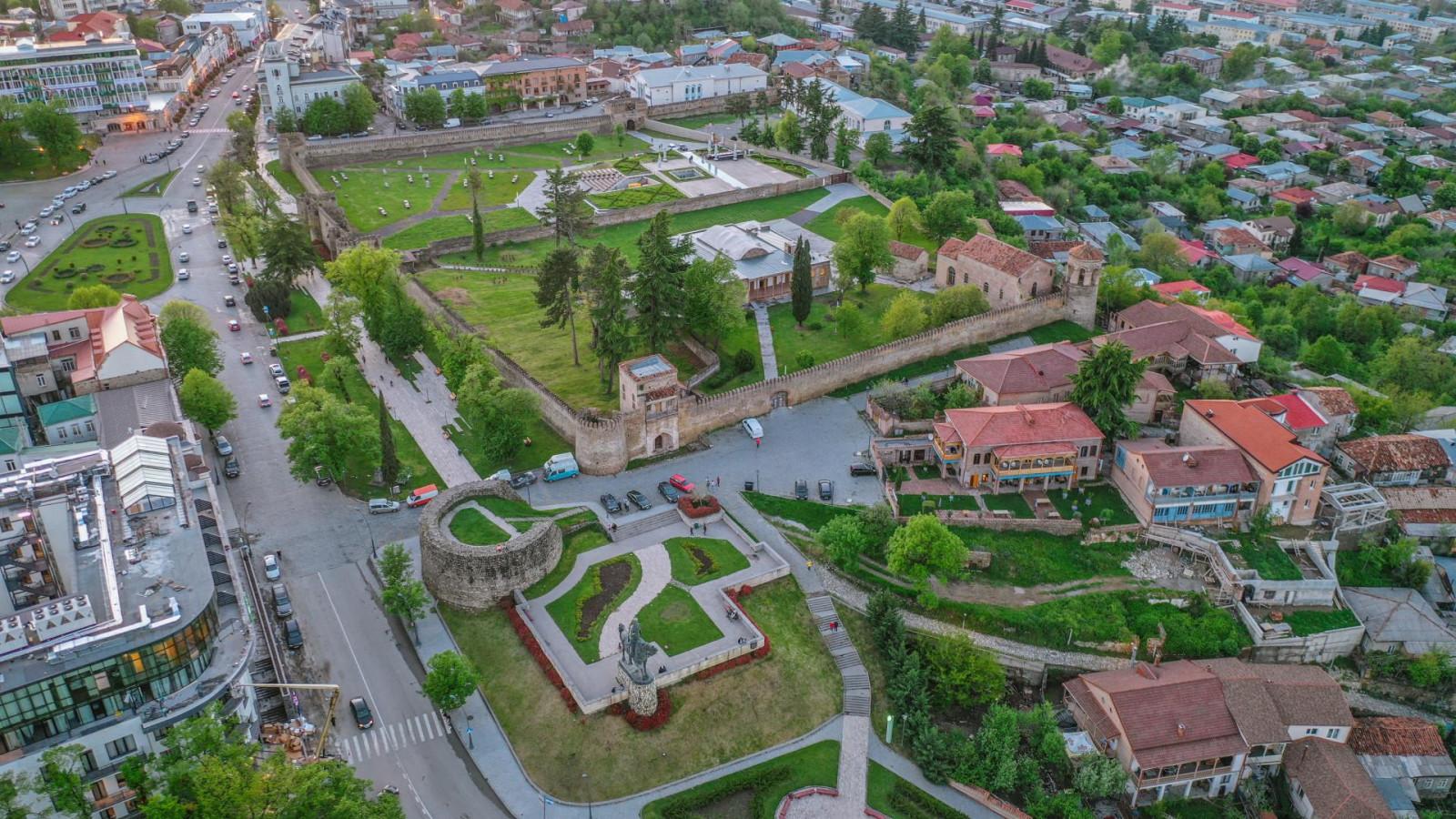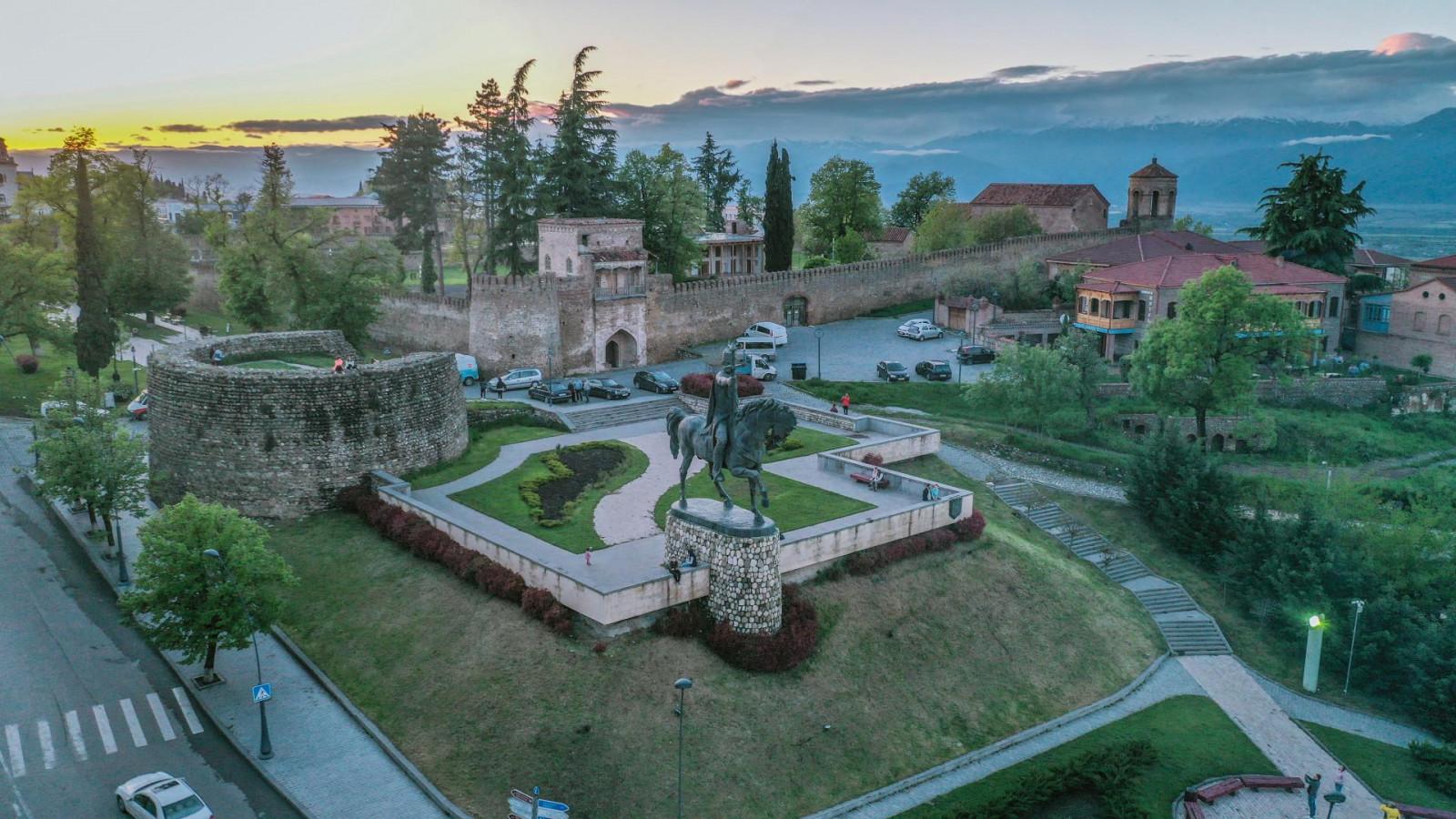Telavkalakoba
Every year, on November 7, a festival named "Telavkalakoba" or "Erekleoba" is celebrated in Telavi. A public, traditional holiday for Kakhetians is equal to "Tbilisoba" and is associated with the anniversary of Erekle II.
How is Telavkalakoba celebrated?
Concerning the birthday of King Erekle, various events are held in the center of Telavi, in the Erekle Museum, and on the territory of Batonis Tsikhe (The Master's Fortress). Batonis Tsikhe was founded in Telavi in the 70s of the 17th century. Until 1801 it functioned as a royal residence. Batoni Fortress combines the palace-memorial of Erekle II, the historical museum, the gallery, the church, the castle wall, the baths, and the tunnel along the palace grounds.
Within the framework of the festival of Telavkalakoba exhibitions of handicrafts and artworks of contemporary artists are held. In pavilions, arranged specifically for this day - the works of entrepreneurs are presented. During the day, the pavilions of the village goods, wine, tourism, handicrafts, books, and music are standing on the main square of the city.
In addition, in the city center, you can attend the process of preparation and exhibition of Georgian dishes.
A large prayer service is held in the Church of the Assumption of the Virgin Mary in the yard of Batonis Tsikhe, and at the same time - in Svetitskhoveli, where Erekle II is buried, to commemorate the soul of King Erekle.
At the end of the day, "Telavkalakoba" ends with gala concerts with the participation of local folk ensembles and Georgian pop musicians. Like the Tbilisoba City Fest, where honorary Tbilisians are awarded every year, the honorary citizens of Telavi are awarded at an event held at the Telavi Theater.
"Telavkalakoba" or "Erekleoba" was last celebrated on November 7, 2019, regarding the 299th anniversary of Erekle II.
In 2020, was the 300th anniversary of King Erekle ...
Erekle II, King of Kartli and Kakheti, was born on November 7, 1720 in Telavi. He was the son of Teimuraz II and his wife Tamar (daughter of Vakhtang VI). In 1762-1798 he was the king of Kartli and Kakheti.
The Georgian people called Erekle II "The Little Kakhetian" (Patara Kakhi), who had to ascend the royal throne of Kakheti during an especially difficult period for Eastern Georgia and spent his entire long life in wars and fighting enemies. Many Georgian and foreign historians have studied the life of Erekle II and expressed many interesting opinions about him.
- Erekle replaced the princely government with a state bureaucratic apparatus.
- Established sectoral division of administration.
- The departments of military, police, foreign affairs, judiciary, finance, and education were separated from each other. (Education was handed over to certain departments. The Kingdom Hall became a constantly operative institution during the reign of Erekle II.
- To centralize the government King Erekle took important measures. Restricted the power of the princes and abolished some duchies (Aragvi, Ksani);
- Warrantied the settlement on lands desolated by the invasions;
- Regulated the serfdom to restrict the power of feudal lords; Strived to attract foreign newcomers and increase royal property;
- Issued a law (1765) by which a peasant returning from captivity with his resources and initiative was granted liberty; Created and enhanced a class of free landowners;
- Created a permanent army based on the principle of rotation (Morige Jari); The king appointed his son, Levan Batonishvili, as the head of the army.
- Restored the urban rule of property (1770);
- Banned the serfdom and slave trade, renewed during the Ottoman-Qizilbash period; Encouraged people to fight against the kidnapping people (1772).
- Every initiation of King Erekle was supported by the Catholicos Anton I, his closest ally, who Erekle put in charge of the Georgian Church and school education.
- With the support of King Erekle, state schools were established in Kartli and Kakheti. Tbilisi Theological Seminary was opened in 1756, Telavi Seminary in 1782.
The National Archives of Georgia preserves historical information about Erekle II, manuscripts, personal letters, publications printed in King Erekle's printing house, portraits of the king and his family members, and more. The exhibits reflect the military, political and personal life of a special, notable king of Georgia.







Please login to add a comment
Write a comment